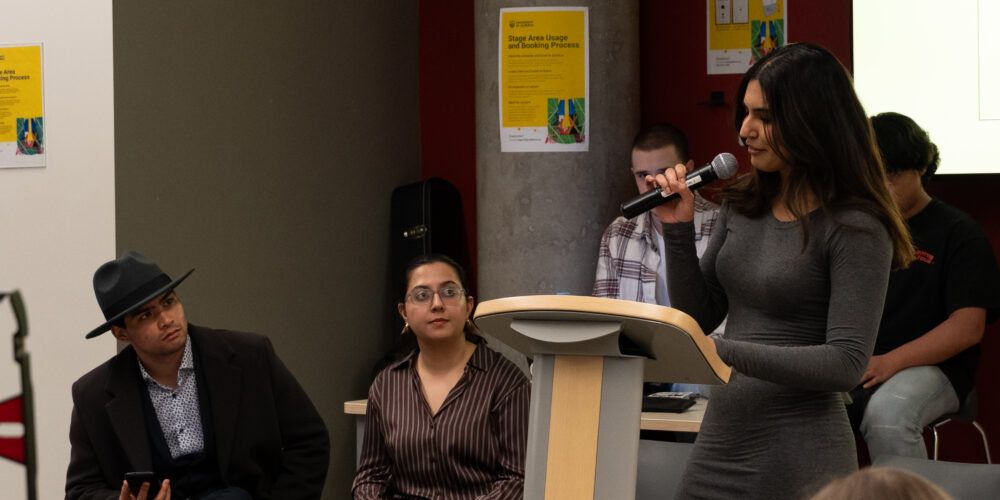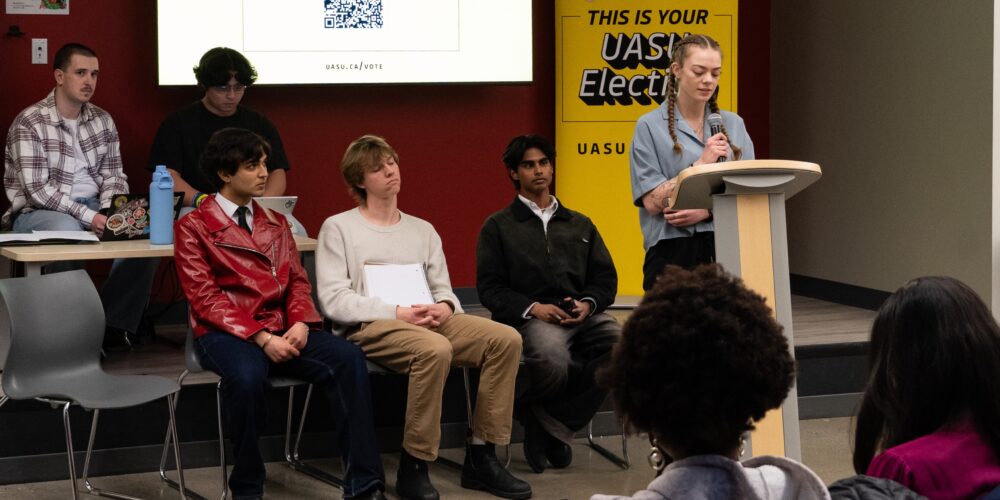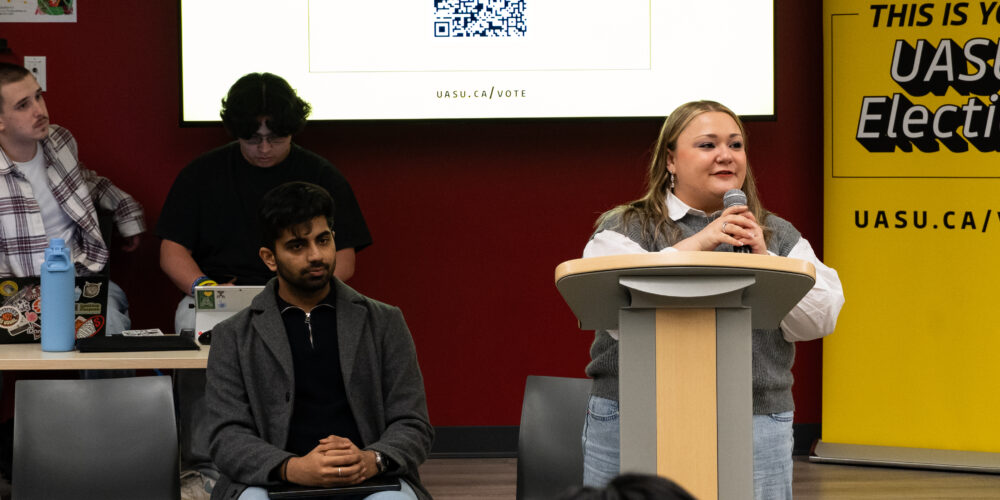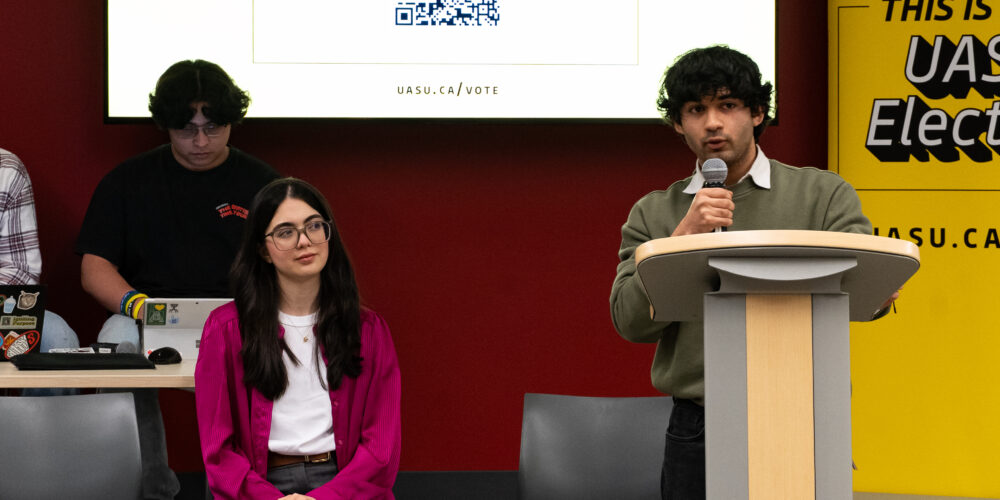Experience defined the final NDP leadership debate
It's clear which candidates have more experience in provincial politics, but being new to the party isn't necessarily a bad thing.
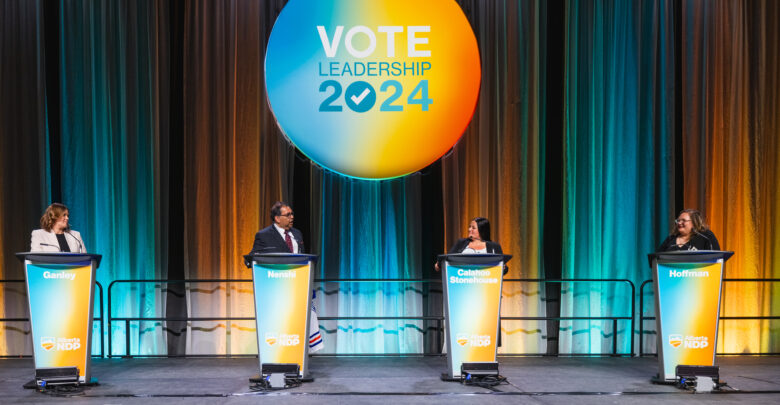 Supplied
SuppliedLeadership candidates had their last chance to make an impression before Alberta New Democratic Party (NDP) members begin casting their ballots. The NDP’s final leadership debate took place in Edmonton on June 2. Kathleen Ganley, Sarah Hoffman, Naheed Nenshi, and Jodi Calahoo Stonehouse debated each other for the last time. Though the debate was much like the previous two, the obvious difference between candidates was experience versus a fresh perspective.
Hoffman and Ganley have both served as Members of the Legislative Assembly (MLA) for two terms now. Both of their campaigns emphasize sticking to the classic NDP values. Calahoo Stonehouse and Nenshi are a little bit newer to the party and provincial politics. The two used their fresh perspectives to their advantage in this debate, to varying degrees of success. But I don’t think either of their ideas outweighed Ganley and Hoffman’s concrete ideas rooted in experience.
Nenshi wasn’t quite so shy about being new to the NDP as he was in previous debates. Instead, he actually talked about bringing a fresh perspective. But what exactly that perspective is remains rather allusive. His emphasis in this debate was growing the party even more than the leadership race already has. And in addition to that, listening to Albertans. But again, he didn’t make it clear what exactly he will do with a larger base or how he will listen.
He also pointed to his record as mayor of Calgary repeatedly. As the last debate showed, his record isn’t perfect and he recognized that. But Nenshi still seems to be banking on his experience and reputation as mayor to win him this race. Ultimately, I’m not convinced that will be enough for everyone.
Being mayor of a city and being the leader of a provincial party are quite different from each other. While Nenshi is focused on winning the next election, it doesn’t seem like he’s given much thought to managing the NDP as the opposition. While the next provincial election is important for the NDP, the NDP needs a leader in the legislature either way. Nenshi still had some convincing to do, and I’m not sure he did enough of it.
Calahoo Stonehouse’s performance in this debate was consistent with the previous debates. In her opening and closing statements, she remained focused on water issues. During the actual debate period, she was passionate and had clear ideas. Additionally, her fresh perspective came from being Indigenous and having connected with younger Albertans. As much as I love the energy she brought to the leadership race, I think she remains the underdog and winning the leadership race isn’t likely. But she is undoubtedly a valuable voice to have in the NDP and I hope the party doesn’t forget that.
Ganley and Hoffman both drew on their experience and history with the NDP in this debate. Hoffman has consistently done this throughout her entire campaign, often pointing to her role as minister of health. Her history with the party works to her advantage and having an experienced leader could be a huge advantage for the party.
Beyond her past, she once again emphasized the importance of the classic NDP values: health care, education, and climate solutions. Additionally, housing has been a huge topic for her campaign. She has promised both a rent cap and to build affordable housing if she were to become premier. And worth noting, she was once again the only candidate to actually talk about post-secondary education. Not only is housing a huge issue for students, but she also talked about the importance of academic freedom and funding. Other candidates didn’t really touch on the subject, even when Hoffman brought it up.
Ganley’s performance was pretty similar and she shares much of Calahoo Stonehouse and Hoffman’s ideas. Throughout her campaign, Ganley has emphasized the importance of convincing Albertans that the NDP are economically smart and capable. She also brought up the importance of leaders being able to recognize mistakes when they make them. This came up in her opening and closing statements, but also during the debate. During the debate, she asked all candidates to identify a mistake they’ve made and apologize for it. The point was to demonstrate that all of them were willing and capable of doing so, unlike our current government.
It felt like a bit of a mom moment, but also one of leadership. Though Ganley doesn’t point to her experience as minister of justice very often, her experience shows in how she conducts herself. She’s remained level-headed throughout the entire campaign and has concrete ideas to back herself up. Both of those things are what the NDP needs in a leader.
Though Nenshi’s popularity likely means he will do well going into voting, the NDP could benefit from someone with more experience in provincial politics. Nenshi’s campaign leaves many things up in the air, whether it’s his actual plans for the party or how he’ll lead from outside the legislature. Ganley and Hoffman both bring experience and good NDP ideas to the table. I have faith that neither candidate would lead the NDP astray if they become the next leader. Additionally, they’re all prepared to fight for Albertans.

